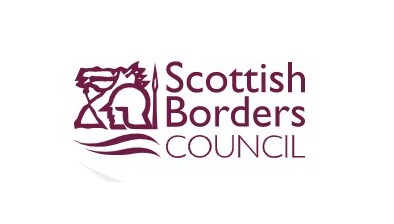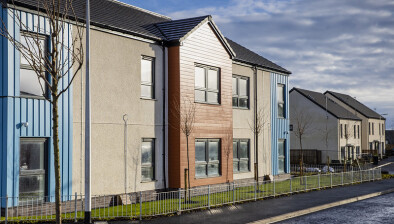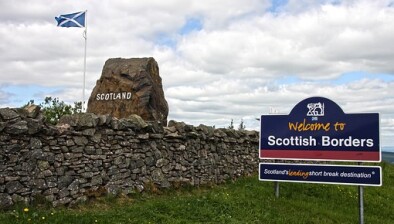Scottish Borders Council to be given update on Cost of Living response

Scottish Borders Council will this week be presented with three reports which will give an update on the progress made through the Anti-Poverty Strategy.
This includes an update on the Cost of Living response, the progress made in delivering the Anti-Poverty Strategy Action Plan, which was adopted by Council on 23 September 2021, and the Scottish Borders Local Child Poverty Report for 2022/23 and Action Plan for 2023/24.
The report on the Anti-Poverty Strategy provides an update in relation to the £1.2m financial support package that was released from Council reserves to provide support to communities during 2022/23.
From the £1.2m Cost of Living Support Fund, an immediate allocation of £585k was agreed by Council on 25 August 2022, which enabled a range of support to be put in place quickly.
Since August 2022, proposals for the remaining £615k have been considered and approved by the Cost of Living Strategic Board including:
- The Warm and Well Fund launched to support voluntary, community and charity organisations to provide warm spaces.
- In Berwickshire, over 200 warm space sessions were delivered between November 2022 and March 2023, with over 4,000 people attending.
- In Cheviot, St Boswells Village Hall developed ‘Warm-up Wednesdays’. These sessions ran for 14 weeks and supported over 200 members of the community.
- The Warm & Well: Youth Work Collaborative awarded grants to 25 Youth Borders member organisations to deliver additional activities or enhance provision to keep young people warm and well over winter 2022. A total of 1,488 young people directly benefitted from this funding, there were 280 additional youth work sessions and 430 households were signposted to further advice and support. 182 care packs of food, blankets and warm or waterproof clothing were also distributed.
- 60k was awarded for breakfast clubs to 20 schools/community groups, (3 in Berwickshire, 4 in Cheviot, 9 in Eildon, 3 in Teviot & Liddesdale, and 1 in Tweeddale). Funding is being used to provide free breakfast for everyone with the aim of maximising attendance in school, providing a nutritional breakfast and working towards providing an equitable offer across the Scottish Borders.
The report also includes an update for the allocation of balances in relation to the Financial Hardship Fund.
The Anti-Poverty Strategy report presents the progress made in delivering the Anti-Poverty Strategy Action Plan, which was adopted by Council on 23 September 2021. This includes an update on the work of the Anti-Poverty Members Reference Group, which was set up to give guidance to officers, to receive input from the Council’s partners, other organisations and individuals, including those with lived experience of poverty.
The actions and progress made against the 11 outcomes of the Anti-Poverty Action Plan are detailed in the Anti-Poverty Strategy Progress Report.
Key highlights include:
- Monetary gains for benefits (inclusive of Macmillan support and Financial help in Early Years) for 2021/22 amounted to £3.39m and for 2022/23 the figure was £3.94m
- Fifteen thousand iPads have been distributed to pupils and school staff since 2019
- The Scottish Borders Local Employment Partnership (LEP) have supported individuals into paid employment through initiatives such as No One Left Behind, the Employment Support Service, the Parental Employability Service and the Job Creation Scheme
- Over 1400 young people directly benefitted from the Warm and Well: Youth Work Collaborative which was funded from the £1.2m cost of living support package.
The third report presents the Scottish Borders Local Child Poverty Report for 2022/23 and Action Plan for 2023/24.
The Local Child Poverty Report and Action Plan aligns with the approach of the Scottish Government’s tackling child poverty delivery plan 2022 to 2026, ‘Best Start, Bright Futures’, which sets out how we can work together to deliver on Scotland’s national mission to tackle child poverty.
Significant updates which indicate the challenge we face in tackling child poverty in the Scottish Borders include:
- Children in low income families (before housing costs) has risen from 14.6% in 2020/21 to 19.7% in 2021/22, similar to the trend for Scotland. The rise is likely to be a direct result of the cost of living crisis.
- In 2022, the median gross weekly pay for full time workers working in the Scottish Borders (workplace based) was £571.30. This is £69.20 less than the £640.50 for full-time workers working elsewhere in Scotland. This is 89% of the Scottish figure.
Significant work has been undertaken to address child poverty in 2022/23 by Scottish Borders Council, NHS Borders and partners. Good progress has been made against actions set out and some highlights are:
- The actions and progress made around employability are wide and varied. There continues to be a strong focus on parental employability and employment opportunities for modern apprentices, as well as partnership work on positive destinations, volunteering, and learning and skills development.
- Partners have supported families with benefit checks. Midwives and health visitors continue to refer expectant and new mothers, and this has resulted in an uplift in benefits of £1.2m in 2022/23.
- Through the summer holiday period of 2022 (4th July – 16th August 2022), Live Borders worked in partnership with Scottish Borders Council to deliver a comprehensive programme of sport, physical activity and cultural opportunities and continued to offer free places for identified children through discount codes and in some instances, making whole offers free of charge.
Councillor Robin Tatler, SBC’s executive member for community and equalities, said: “It’s really important to recognise the significant progress that has been made up to now, but it’s also important to recognise that there is still work to do. These three reports give an update on the progress that has been made to date, and it’s essential that we continue to take action and work with partners to deliver these plans and strategies”.








